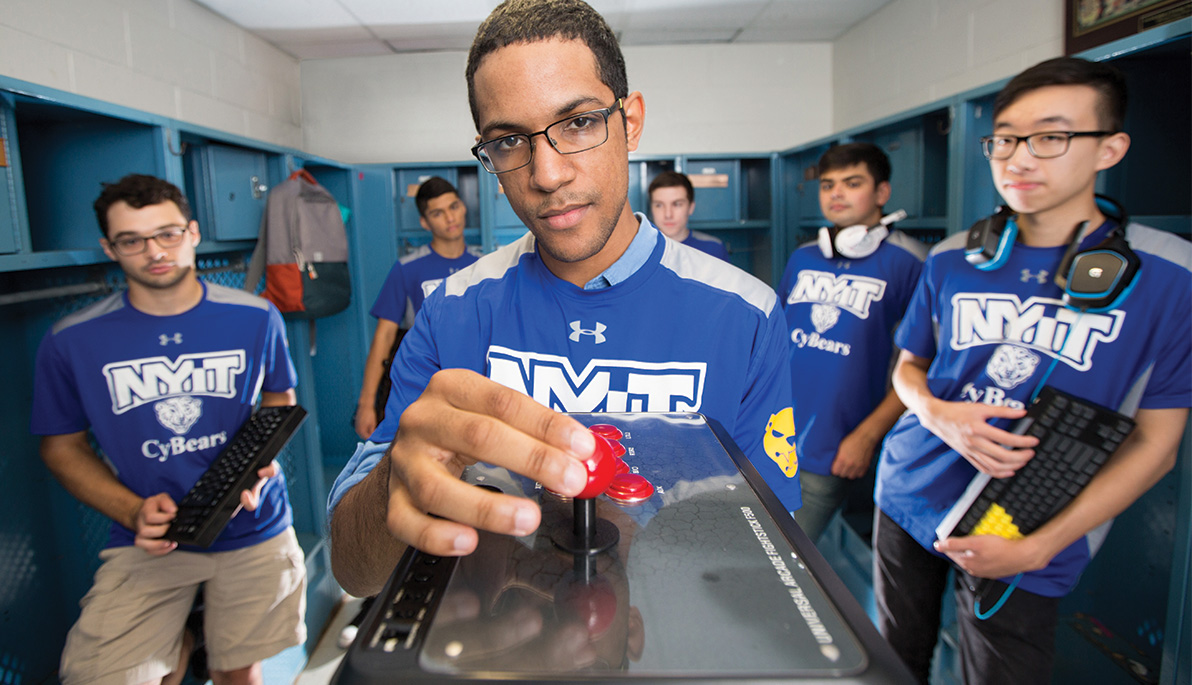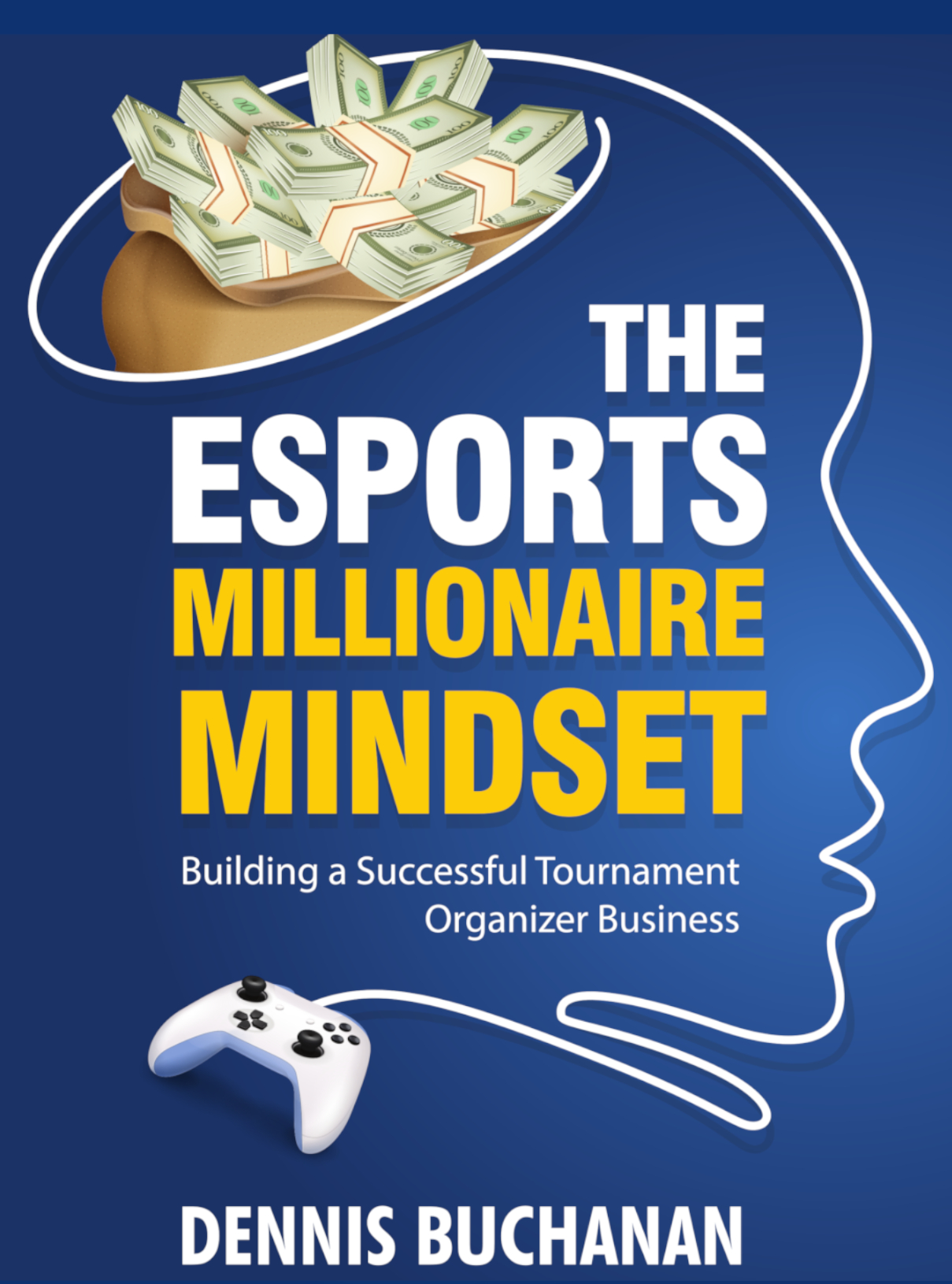
From studies to NYIT E-Sports, a Long Island college is using video games
Posted by admin January 17, 2019 in , College EsportsEsports GamingFrom studies to NYIT E-Sports, a Long Island college is using video games

Above: The esports team at the New York Institute of Technology
College students need to play more video games. Seriously.
New research shows that gaming — long thought by parents and teachers to be a waste of time — actually improves cognitive and social skills. It’s one of the most accessible, inclusive activities for students. Despite stereotypes, professional video gaming has become a big business, so job opportunities are swelling.
In other words, far from being just a virtual reality, esports teach people how to operate in the real world. Colleges can play a role in preparing students for this burgeoning industry by investing resources in video gaming and related academic programs.
Video games build real-world skills
Video games have long received a bad rap. The stereotypical gamer is a young man, isolated in a dark basement and staring at a glowing screen. And plenty of critics argue that video games have few practical applications and even stunt intellectual growth.
But that conventional wisdom has been proven wrong. Many games actually improve attention, memory, and decision-making, according to a comprehensive analysis of video game studies published in the American Journal of Play. A 2013 report shows that playing action video games boosted dyslexic children’s scores on reading tests — in some cases, even more than highly demanding traditional treatment programs.
Video games also improve “computational thinking,” an advanced problem-solving approach that is becoming increasingly crucial in the professional world. It involves breaking down a problem, identifying patterns, and developing solutions. A 2016 study by researchers at Northwestern University and Columbia University found that games in which players explore, build their own world, and set their own goals are particularly good at cultivating this type of thinking.
Video games can even improve social skills and help people form relationships, according to a 2016 study published in Social Psychiatry and Psychiatric Epidemiology. Moreover, today’s gamers don’t fit the stereotypical image of a nerdy teenage boy; more than 70 percent of today’s gamers are 18 or older, and 45 percent are women.
Careers in the esports Industry
Meanwhile, the gaming industry offers a wide array of potential career opportunities. Competitive video gaming leagues, in which players face off in regulated tournaments, generated $655 million in revenue in 2017 and likely brought in more than $900 million in 2018, according to a report from Newzoo. And the global esports audience is projected to hit 550 million in 2021, nearly double the total audience from 2016.
So there will be a slew of jobs to fill — from marketers and consultants to communications specialists and video game designers.
Schools need to invest in esports
Some universities are already exposing students to this growing field by setting up esports teams. Illinois’ Robert Morris University founded the first varsity esports team in 2014. Since then, more than 100 U.S. schools have joined the National Association of Collegiate Esports. My own school, New York Institute of Technology, recently started a team. There’s plenty of room for more schools. After all, the NCAA has more than 1,200 members for its sports.
Additionally, colleges could create and open up campus spaces dedicated to esports at all levels of competition — including intramural or club esports teams. Unlike traditional athletic programs that require extraordinary athleticism, virtually all students can participate on this playing field. And since esports require very little personal equipment, they’re more affordable than many other activities once the systems are set up.
Only a relative handful of students will ultimately become professional gamers, a lucrative career that can pay millions of dollars per year. But many students could work in the wider esports industry, as long as schools equip them for success.
Several schools are leading the way. Becker College in Massachusetts, for example, offers a Bachelor of Science in Esports Management. Emerson College, also in Massachusetts, has several esports courses. Many schools have video design programs, which can set students up for well-paid careers. The average salary for a video game designer in the United States is more than $88,000.
Esports careers abound in the medical field, too. Here at NYIT, we have a Center for eSports Medicine that employs a year-round team of physicians and physical therapists to assist the school’s esports athletes and conduct research on the medical implications of competitive gaming.
Far from being a waste of time, video games offer significant social, cognitive, and economic benefits. In sum, they prepare people for real-world scenarios. It’s up to colleges and universities to up their game and prepare students for this booming industry.
Want to get in to E-Sports? Learn more about our League and the Opportunities we offer click here sign up



Henry C. Foley, Ph.D., is president of New York Institute of Technology.
Original Article by Venture Beat
Latest Articles
- The eSports... Posted on May 17, 2024
- 🌟 Exciting... Posted on May 15, 2024
- Field Trip Fun at... Posted on April 9, 2024
- Premier of Story... Posted on
- 6 Benefits of... Posted on February 5, 2023








